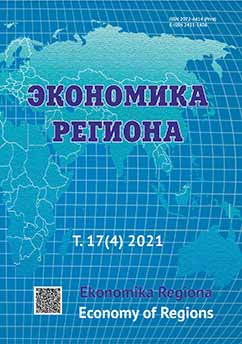Оценка профессионального состава занятых в регионе
Assessment of the Occupational Structure of Employed in Regions
Author(s): Alexander A. Tkachenko, Argishti B. GinoyanSubject(s): Economy, Geography, Regional studies
Published by: Институт экономики Уральского отделения Российской академии наук
Keywords: forecasting occupational structure; International Standard Classification of Occupations; emotional intelligence; data literacy; Conference of European Statisticians; vacancies; deficit of jobs
Summary/Abstract: Since 2008, Russia has been conducting special surveys on the occupational structure of employed in the form of a federal statistical observation «On the number and needs of organisations for employees by professional groups». The present study aims to assess the data obtained from this observation for 2008–2018, as well as to compare the methodologies of Federal State Statistics Service (Rosstat) and the International Standard Classification of Occupations (ISCO-08). The impact of such relevant skills as emotional intelligence and data literacy on vocational training and the emergence of new professions associated with information economy is discussed. The comparative analysis demonstrated that the economy demands highly-qualified specialists in all Russian regions. Simultaneously, the research revealed the impossibility of considering the specificity of regional structures due to the insufficiency of information for predictive assessments of structural changes and the lack of data on occupations in small business and financial and social insurance sectors. According to the analysis of the dynamics of vacancies for various groups of occupations, the linear trend in the total amount of vacancies tends to decrease. The absence of relevant regional data prevents an in-depth analysis of regional differences and the construction of econometric models to identify the reasons for these differences. Additionally, it is impossible to assess the determinants of the lack of qualified staff by professional groups in Russian regions without these data. The study concludes that researchers and experts, using the Rosstat methodology, should not synonymise the concepts of occupation, speciality and type of activity. The research results can be used to expand Rosstat’s survey of occupations, in particular, its database for Russian regions, as well as to improve the methodology for statistical observation of occupational structure of the employed.
Journal: Экономика региона
- Issue Year: 17/2021
- Issue No: 4
- Page Range: 1224-1238
- Page Count: 15
- Language: Russian

